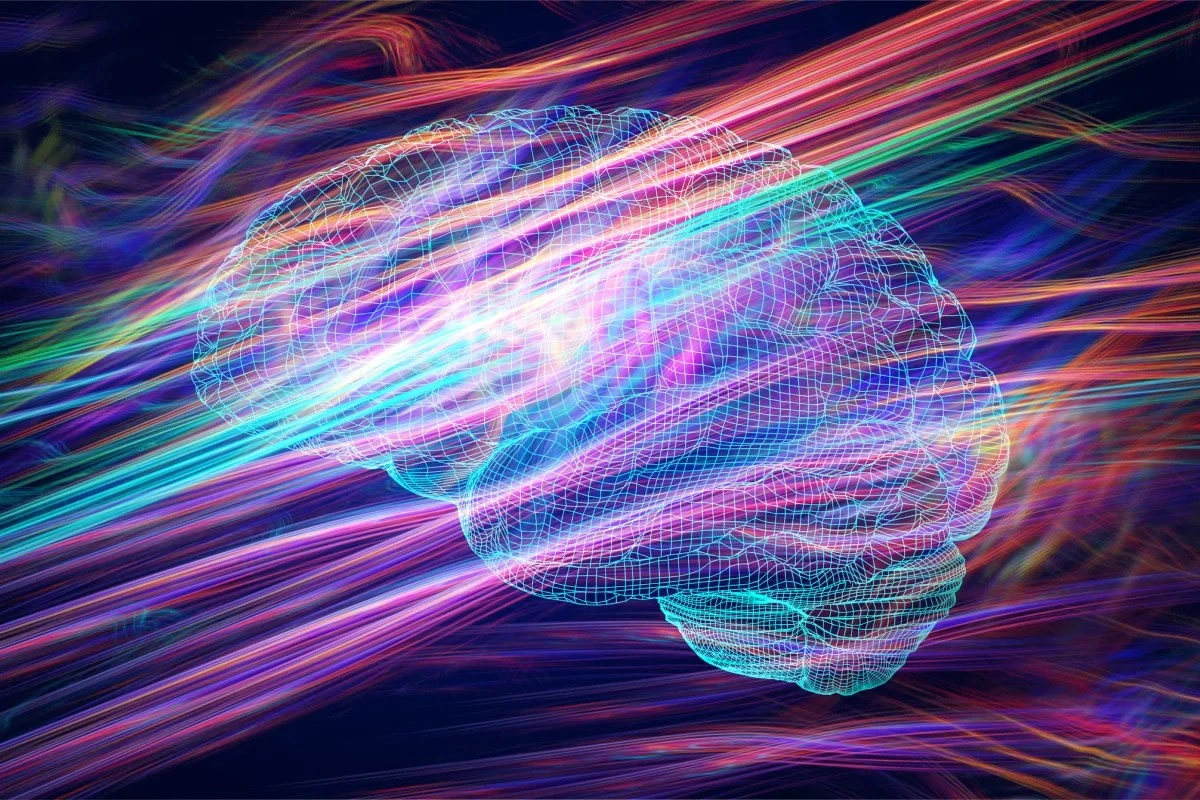AI mental health care: revolutionizing treatment
Like this project
Posted Jun 17, 2023
AI is transforming mental health care with personalized treatments and early detection. Discover its benefits, risks, and ethical implications.
Likes
0
Views
7

AI-driven mental health care: personalized treatments, predictive models, and ethical imperatives
Mental health is a growing concern globally, with more than 50% of people receiving a mental health diagnosis at some point in their lives. Whether we struggle with our own mental health or care for loved ones who do, mental health is an issue that affects the daily lives of us all.
Mental health conditions are complex and can often be challenging to diagnose and treat. But recent advancements in technology offer new hope for millions of people worldwide.
AI, the cutting-edge technology that is revolutionizing mental health care.
Enter artificial intelligence, or AI, the cutting-edge technology that is revolutionizing mental health care.
With its ability to provide personalized treatment, identify people at risk of mental health problems, and even develop digital biomarkers, AI is changing the game regarding mental health. And while there are certain risks and challenges associated with using AI tools in mental health care, this technology can potentially improve countless lives.
Artificial intelligence in mental health care today
Artificial intelligence in mental health care is an emerging field of study. AI’s rapidly changing technology has the potential to transform mental health care and provide more effective personalized treatments. AI can automate specific tasks, analyze patient data, and improve risk or illness predictions.
AI-assisted mental health interventions can identify potential warning signs of mental health issues, such as depression, anxiety, and substance abuse. People can also use AI to identify potential sources of mental health problems, such as a stressful work environment or a lack of social support.
Woebot: relational agent for mental health
One example of AI in mental health care is Woebot, a chatbot that uses Cognitive Behavioral Therapy (CBT), Interpersonal Therapy (IPT), and Dialectical Behavioral Therapy (DBT) practices to help people with depression, anxiety, and other mental health challenges. Woebot uses natural language processing (NLP) to understand a person’s language patterns and responds with empathy.
According to its website, Woebot can form trusted bonds with people within 3-5 days and deliver clinically validated techniques in a conversational format. Another study validated these outcomes by concluding that conversational agents like Woebot “appear to be a feasible, engaging, and effective way to deliver CBT.”
Tess: mental health chatbot
Another example is Tess, an integrative psychological AI chatbot that provides self-help message exchanges that mirror texting with a coach or a friend. Clinical psychologists built it, and its website boasts impressive outcomes: 92% of users moved toward recovery, over 2,000 chats with Tess occurred during a crisis, over 7,500 depression screenings took place via Tess’s conversations and more.
One study looking to assess the feasibility of Tess to reduce anxiety and depression in college students found it to be an accessible, cost-effective tool for delivering support but not to replace the role of a trained therapist.
SAM: detecting the language of suicide
While AI does lack the insight required to treat patients with mental illness thoroughly, it can still identify patterns and language indicating potential psychiatric problems. For example, Dr. John Pestian used AI to analyze hundreds of suicide notes and found that the most common statements were instructions rather than expressions of emotion.
Pestian and his team then used algorithms to classify patients as suicidal, mentally ill, or neither. They found that the machine learning model came to the same conclusions as human caregivers about 85% of the time, according to his interview with The New Yorker. This model created SAM, which uses AI to listen in on conversations and compare what people say to identify those at risk of self-harm.
Benefits and risks of combining AI and mental health care
AI could be a powerful tool for improving access to quality mental health care and enhancing the accuracy and efficiency of diagnosis and treatment.
While the benefits of this emerging technology are beyond impressive, it’s essential to also consider the drawbacks of using AI in mental health care when making decisions about its use.
Benefits of AI-assisted mental health interventions
The integration of artificial intelligence into mental health care has the potential to provide more accurate and timely interventions for those in need, reduce the stigma associated with seeking help for mental health issues, and make care more accessible for those who are unable or unwilling to access traditional treatment interventions.
AI can also provide cost (and time) savings for healthcare providers, as well as improved diagnostic accuracy, treatment adherence, and more personalized approaches when developing treatment plans.
Risks of AI-assisted mental health interventions
However, integrating AI into mental health care is not without risks. AI algorithms are not perfect, and there is a risk of bias being built into them, leading to incorrect decisions. AI systems require data from humans, which can be subject to errors, leading to inaccurate conclusions.
Natural language processing also has the potential to miss subtle cues, as it is difficult to teach computers to interpret human language in the same way humans can. These subtle cues can be critical in detecting or understanding a person’s state of mind.
It is also important to acknowledge the potential ethical concerns that come with using AI in mental health, such as privacy issues, bias, and the dehumanization of care. We must address these concerns and implement safeguards to ensure that the use of AI in mental health care is both effective and ethical.
By striking a balance between the potential benefits and drawbacks, we can leverage the power of AI to improve mental health outcomes and provide accessible, personalized support to those who need it most.
Ethical considerations for the future of AI mental health care
In 2019, researchers reviewed 28 scientific studies of AI and mental health that took electronic health records, brain imaging data, novel monitoring systems like smartphones and video, mood rating scales, and social media platforms to classify and predict depression, suicidal ideation, suicide attempts, schizophrenia, and other mental health conditions.
The findings concluded that by leveraging AI in mental health care, we could obtain continuous, long-term monitoring of the unique bio-psycho-social profiles of individuals that impact their mental health. AI is well-suited to process the resulting number of large sets of complex data.
Their findings also mention ethical considerations for AI in mental healthcare practice, such as the need for accurate algorithms and addressing biased data. AI can offer many benefits, including improving the detection and diagnosis of mental illnesses, monitoring treatment progress, and delivering remote therapeutic sessions. But the research concludes that a diverse community of experts must communicate and collaborate to expand and realize the full potential of AI mental healthcare.
Ethical integration of AI in social work: addressing bias and ensuring just practice
Social Work and Artificial Intelligence: Into the Matrix also asserts that a diverse group of experts must collaborate on how AI will impact mental health services now and into the future. The author shares that “as AI proliferates across all sectors of industry, social work must claim a place in AI design and development, working to ensure that AI mechanisms are created, imagined, and implemented to be congruent with ethical and just practice.”
Research makes it clear that bias and ethics are significant concerns when using AI in mental health care. Practitioners must inform patients of the risks and benefits associated with AI-assisted interventions, and they should put the appropriate safeguards in place to ensure the privacy and security of patient data. They must also embrace this new wave of changing technology to ensure their expertise influences the efficacy of the interventions.
The bottom line
AI is poised to transform mental health care by providing tailor-made treatments, detecting individuals who may be susceptible to mental health disorders, and creating digital biomarkers. Promising virtual therapists like Woebot and Tess have been able to provide personalized therapy to those suffering from depression, anxiety, PTSD, and other mental health challenges.
Additionally, predictive models have demonstrated the ability to identify people at risk of mental health problems. And other reports that this ability to identify could integrate into the workplace to help employees monitor stress. The future possibilities are seemingly endless.
Although there are potential risks associated with utilizing AI tools in mental health care, such as bias and privacy breaches, the positive impact of AI mental health technology holds enormous potential. By incorporating ethical practices, mental health care can advance significantly with the support of AI.
Megan Marshall
Megan Marshall is a freelance writer and social worker. She obtained her master’s degree in social work from Fordham University’s Graduate School of Social Service. As a dedicated advocate for all things mental health and wellness, she is deeply interested in the systems-level impacts on individual mental health.




